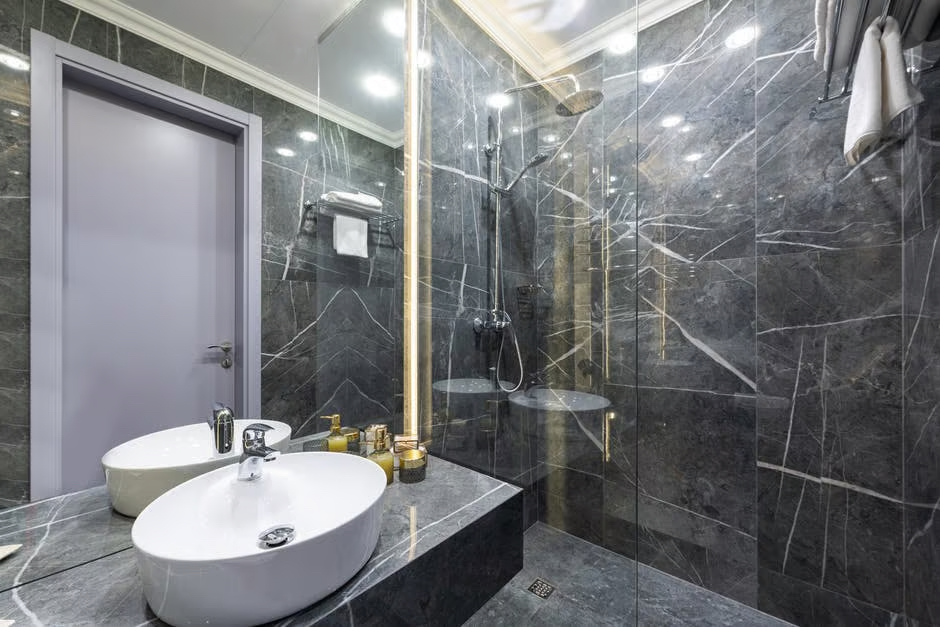
When planning a bathroom remodel, the shower enclosure is one of the most impactful decisions you will make. It’s a major focal point that defines the entire aesthetic of the room. The primary choice you’ll face is between a traditional framed shower door and a modern frameless shower enclosure. While both serve the same basic function, they offer vastly different styles, maintenance requirements, and price points. Understanding the pros and cons of each is key to selecting the perfect enclosure for your New Jersey home’s new bathroom.
The Traditional Choice: Framed Shower Enclosures
A framed shower enclosure consists of glass panels that are supported by a metal frame, typically made of aluminum. The door itself is also encased in this frame. This has been the standard design for decades.
- How it Works: The metal frame provides the structural support for the entire enclosure. The glass used is typically thinner (around 1/8 to 3/16-inch thick) because the frame bears the weight. The door usually pivots on hinges connected to the frame and has a magnetic strip to ensure a watertight seal when closed.
- Pros: The primary advantage of a framed shower is its lower cost. The thinner glass and the presence of a frame make it a more budget-friendly option. The frame also does an excellent job of containing water, making leaks less likely.
- Cons: The biggest drawback is aesthetic. The bulky metal frame can look dated and visually chops up the space, making a bathroom feel smaller and more cluttered. The tracks and channels of the frame are also notorious for trapping water, soap scum, and mildew, making them difficult to keep clean.
The Modern Standard: Frameless Shower Enclosures
A frameless shower enclosure is the hallmark of a modern, high-end bathroom. It uses thick, heavy-duty tempered glass (typically 3/8 to 1/2-inch thick) that is strong enough to be self-supporting, eliminating the need for a bulky metal frame around the panels and door.
- How it Works: The stationary glass panels are secured to the wall with small, discreet metal clips or a slim channel. The door pivots on heavy-duty hinges that are mounted directly to a wall or an adjacent glass panel. This creates a clean, seamless, “all-glass” look.
- Pros: The aesthetic is unparalleled. The minimalist design creates a sense of openness and luxury, making your bathroom feel larger and brighter. It showcases your beautiful tile work instead of hiding it behind metal. Frameless enclosures are also much easier to clean; without the tracks and channels, there are fewer places for soap scum and mildew to hide. A simple squeegee after each use can keep the glass sparkling.
- Cons: The main consideration is cost. The use of thick, heavy, tempered safety glass and high-quality hardware makes frameless enclosures a more significant investment than their framed counterparts. While they are designed to be very water-tight, they may not have the same level of absolute sealing as a framed door with a magnetic strip.
As many home design publications like Architectural Digest frequently highlight, frameless shower doors are a key feature in creating a spa-like, luxurious bathroom environment. The choice ultimately comes down to your budget and your design priorities.
Your New Jersey Custom Shower Enclosure Experts
Whether you prefer the classic functionality of a framed design or the sleek, modern elegance of a frameless enclosure, a professional installation is key to a beautiful and leak-free result. For homeowners throughout New Jersey, the team at Michael Angelo’s Custom Mirrors and Shower Enclosures specializes in designing and installing beautiful custom showers. Contact us today for a consultation.

